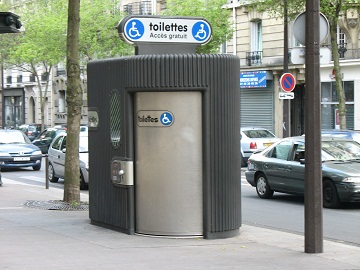
Where do countries stand in terms of achieving equitable access to water and sanitation? To answer this question France, Portugal and Ukraine used a self-assessment procedure to determine the level of equitable access in their countries, which highlighted progress achieved in providing access to water and sanitation for all, while pointing out that some groups of the population are still left aside.
Current water governance frameworks are often “equity blind”, so ensuring equitable access to water and sanitation requires a results-oriented action plan building on a country-situation or a municipality-situation analysis. To address this, a tool was developed under the UNECE Water Convention’s Protocol on Water and Health to support countries in the pan-European region in their efforts to assess and track their progress in achieving equitable access. It also serves to prompt discussions on further actions to be taken in order to achieve equitable access in the context of the implementation of the Protocol and the human right to water and sanitation. The tool, in the form of a score card, focuses on selected issues and indicators to evaluate the three key dimensions identified as the usual main disparities in access to water and sanitation: geographical disparities; specific barriers faced by vulnerable and marginalized groups; and affordability concerns.
The assessment carried out in Ukraine showed that public policies include a number of strategic orientations that contribute to providing equitable access to water and sanitation for all. However, sectoral approaches are not coordinated and funds are often not available to turn these strategies into action. Many inequities remain, with large geographical disparities. In urban areas, 88 per cent of the people have access to water supply and 61 per cent have access to improved sanitation, while in rural areas, only 23 per cent of the people have access to water supply and only 2.6 per cent to improved sanitation.
In Portugal, access to water and sanitation has dramatically increased over the past 20 years. In order to promote affordability of water and sanitation services for all, the regulator has issued recommendations on tariffs for municipal operators to establish charges consistent with the economic capacity of populations, and especially the poorest, through progressive pricing. Half of the operators at the municipal level already apply social tariffs, and subsidies at the national and municipal level currently used to benefit the poorest through social tariffs reached 2.8 million euros in 2011.
In France, the exercise carried out in Île-de-France (greater Paris metropolitan region) showed that specific measures have been taken to address the needs of vulnerable and marginalized groups. Some 400 public toilets, 30 public baths and 1000 fountains are available free of charge in Paris for people without a fixed residence to access water and sanitation. Specific funds, maintained by water and wastewater operators, are available to support those with low incomes to pay their water bill through the Housing Solidarity Fund and other municipal funds. In addition, as a matter of policy, those who cannot afford to pay their water and sanitation bill cannot be disconnected for that reason.
The three assessments highlighted the lack of statistics available about access to water and sanitation for vulnerable and marginalized groups and of an integrated public policy to address their specific needs. The three countries are now considering the possibility of including more specific targets for equitable access in their future strategic plans for water and sanitation. This will contribute to the mandatory progressive implementation of the human right to water and sanitation.
For more information, please visit: http://www.unece.org/env/water.html
or contact:
Ms. Chantal Demilecamps
UNECE/WHO-EURO Protocol on Water and Health Secretariat
Phone: +41 (0)22 917 2463
E-mail: [email protected]
Note for Editors:
The score card on assessing progress in achieving equitable access to water and sanitation was developed in the framework of the activities of the UNECE/WHO-Europe Protocol on Water and Health to the Convention on the Protection and Use of Transboundary Watercourses and International Lakes (Water Convention). The Protocol aims to ensure the adequate supply of safe drinking water and adequate sanitation and to provide universal access to water supply and sanitation. As Party to the Protocol on Water and Health since 2005, France is leading and supporting activities on equitable access.
Assessments using the score card on equitable access were run at the national levels in Ukraine and Portugal and at the regional level in France (in Île-de-France). The assessment in Ukraine was coordinated by the State Sanitary and Epidemiological Service of Ukraine, the Ministry of Ecology and Natural Resources of Ukraine and the All-Ukrainian Environmental Non-Governmental Organization “MAMA-86”. The assessment in Portugal was led by the Water and Waste Services Regulation Authority (ERSAR). The assessment in the Île-de-France region was completed by the French Ministry of Health, the City of Paris, in collaboration with Paris water and wastewater operator in Paris (Eau de Paris), the Paris urban area wastewater treatment authority (SIAAP) and the Water Union of Île-de-France (SEDIF).

